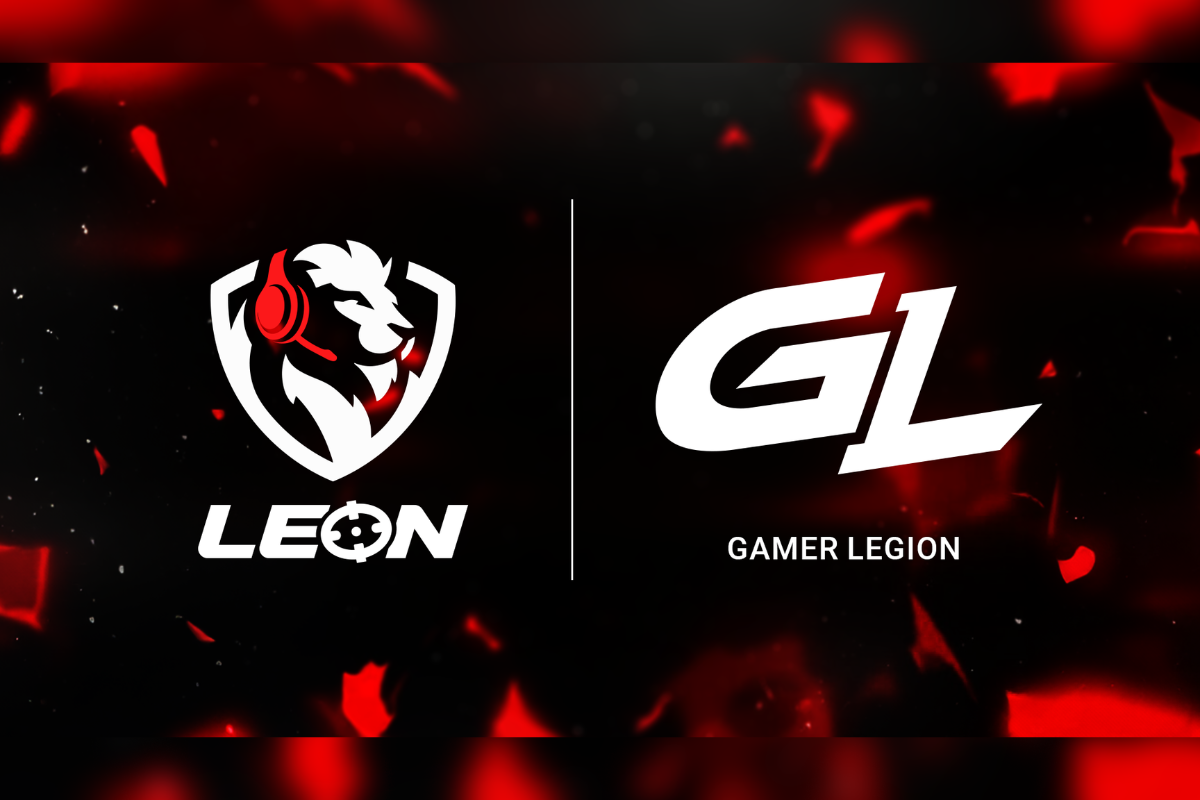News
The Rise of Female Bettors: What Does This Mean for Marketing Campaigns?

With the growth of women’s sports leagues and more media coverage, women have become more invested in sports and more likely to place bets. As a result, marketing strategies are shifting their focus toward engaging female bettors. However unbeknownst to most marketers, the more direct targeting they are doing, the higher the costs to businesses because of returning users.
Returning users are holding marketers back from effectively targeting this wide pool of new customers by driving up Customer Acquisition Costs (CACs). Marketers need the stability and freedom to target accordingly and take advantage of the rise in female bettors.
Managing returning users must be a priority for sportsbooks to fully take advantage of the changing market and ensure the longevity of their campaigns. Without full transparency over the data they’re using to target and big question marks over a lack of tangible results from their spending, sportsbooks risk missing out on a huge opportunity to scale.
The Barriers to Expansion
The percentage of women betting on women’s sports in the US has grown up to 10% annually in recent years according to The IBIA. The targeting pool is growing for marketers as interest rises and the increased ease of online betting makes it simpler for women to place bets – backed by research from The Sports Betting Report, revealing that 26% of American women bet daily.
Marketing efforts are shifting to be more equal in this space as sportsbooks seek to make maximum profits from a new wave of players. However, by pumping more budget into paid ads targeted at women, sportsbooks are compromising the success of their campaigns.
Due to this direct ad targeting, women are more likely to bet by clicking on paid search campaigns. However, by repeatedly using paid ads as a front door to the site, rather than organic search results, returning bettors create inefficiencies in advertising as the Cost-Per-Acquisition (CPA) increases. So although these are enthusiastic players returning to place bets, they’re inadvertently driving up costs across the board.
If sportsbooks don’t manage the rise in bettors accessing their sites via paid ads, rather than an app or gateway site, they face losing out on the chance to expand further with new audiences.
Methods of Managing Returning Users
Now the answer isn’t to stop targeting female bettors. The rise in women in the betting scene presents an opportunity for sportsbooks and the challenge of returning users will remain whether marketing strategies shift or not.
To successfully combat returning users from driving up costs and damaging campaign results, sportsbooks should start by setting custom validation rules. Here, operators can cap the number of times a user clicks on a paid ad and once the threshold for clicks is met, the user is prevented from seeing the campaign. This effectively reduces high cost-per-click (CPC) rates by excluding users who are unintentionally driving up costs.
Alongside this, shadow campaigns can be implemented to further the level of success in reducing costs and maximising audiences. These are a duplicate of the sportsbook’s current campaign, but the CPC is reduced meaning that any returning users or excessive clickers can be targeted at lower CPCs. This is a new level of targeting that sportsbooks can harness to elevate their marketing strategies.
With this tactic, advertisers can maintain a level of personalisation in their targeting to make the most of the rise in female bettors without increasing CACs. Budgets are then saved for genuine users with the propensity to convert.
Control Over Campaign Traffic Unlocks True Results
Ultimately, more bettors mean more opportunities. Solidifying campaigns to take advantage of the rise in female bettors is important, but not where sportsbooks should be starting. Without initially protecting campaigns from unknowing returning users, the work to attract those customers causes great losses rather than any gain.
To avoid high costs and take back budget control, marketers need to start by deploying shadow campaigns and custom validation rules. With these tactics in play, businesses will unlock new levels of visibility into campaigns and put themselves in the best position to make the most out of the emerging wave of female bettors.
By: Richard Metcalf, Global VP, Sportsbetting & Online Gaming, TrafficGuard
News
N1 Faces: Shirin Mammadov — Building Trust That Drives Performance

Growth in affiliate marketing is easy to promise — much harder to sustain. Real long-term results are built on consistency, clear communication, and relationships that can withstand market shifts, changing traffic sources, and rising competition.
In the new episode of N1 Faces, the N1 Partners team introduces Shirin Mammadov, Senior Affiliate Manager — a specialist focused on building structured, trust-based collaboration with partners. In this interview, Shirin shares how he entered the industry, what principles guide his work today, and what it takes to maintain performance and clarity in a high-pressure environment.
Shirin Mammadov
Senior Affiliate Manager, N1 Partners
How did you get into affiliate marketing, and when did you realize this was the field you wanted to grow in?
It started unexpectedly. At the time, I was running our own startup and wasn’t actively looking to move into affiliate marketing. The industry felt fast-paced, competitive, and performance-driven — exactly where I thrive. I’ve always enjoyed communication, negotiations, and building relationships, and affiliate marketing combines all of that. After some time in the role, I realized this wasn’t just a temporary step — it was a field where I could grow and challenge myself long term.
What brought you to N1 Partners, and what was the deciding factor?
Before joining N1 Partners, I was on the affiliate side, and N1 was one of my partners. From the start, the relationship with the team was transparent and professional. I saw their structured processes and strong performance mindset, but also a genuinely friendly atmosphere.
When I decided to move forward in my career, the key factor was trust. I already knew their standards and approach to growth. It wasn’t a risky move — it was a strategic one. I wanted to join a company I respected and where my affiliate-side experience could add real value.
What advice would you give your first-month self as an affiliate manager?
I would tell my first-month self to focus less on trying to prove myself immediately and more on deeply understanding the product, numbers, and traffic quality. Building strong partnerships takes time, and trust is more important than quick deals. I would also remind myself to ask more questions and not be afraid to challenge assumptions. The faster you understand the bigger picture, the faster you grow.
When do you know a partner will become a long-term relationship rather than a one-off deal?
You can usually see it from the very first conversations. If a partner is transparent about their traffic sources, open to feedback, and interested in continuous optimization rather than just the highest CPA, that’s a strong sign. Long-term partners think about strategy, testing, and growth — not just short-term profit. When there is mutual trust and aligned goals, it naturally turns into a sustainable relationship rather than a one-off deal.
How do you separate “normal volatility” from a real problem when you look at performance reports?
I separate normal volatility from a real problem by looking at trends over time rather than reacting to a single day’s numbers. Small fluctuations are normal, but consistent drops, unusual patterns, or deviations from historical performance are red flags. I also consider external factors, like seasonality or campaign changes, before jumping to conclusions. Once a pattern looks concerning, I dig into the data and communicate with the partner to identify the root cause.
Was there a time when the right communication truly “saved” a partnership? What did you do differently?
Yes, there was a situation where a partner was underperforming and frustrated with their results. Instead of focusing on numbers alone, I scheduled a direct conversation to understand their concerns and listen carefully. By aligning on goals, explaining the strategy, and suggesting practical adjustments, we rebuilt trust and improved performance together. It showed me that proactive, transparent communication can turn a challenging situation into a stronger, strategic partnership.
Do you have a personal motto? Sum yourself up in one sentence.
Work smart, communicate clearly, and always aim for long-term results
What helps you stay balanced and clear-headed during high-pressure periods?
I stay balanced by keeping active and making sure I move my body, whether it’s at the gym or just staying consistent with workouts. I also make a point to disconnect from work for short periods, which helps me reset and approach challenges with a clear mind. Planning my day carefully and focusing on one task at a time keeps stress manageable. This combination of physical activity and structured focus helps me stay calm and effective under pressure.
If you weren’t in iGaming …
If I weren’t in iGaming, I think I’d be a seaman. I’ve always been drawn to the sea – the challenge, the adventure, and the discipline it requires really appeal to me. In a way, both paths share the same mindset: staying focused, navigating uncertainty, and taking responsibility for outcomes.
Top-3 Blitz
What are the biggest red flags in leads — and what do you do when you see them?
- Unclear traffic sources — I ask detailed questions and request transparency before moving forward.
2. Inconsistent performance — I monitor closely and set clear KPIs to track improvements.
3. Lack of communication or responsiveness — I address it directly, set expectations, and decide if the partnership is worth continuing.
From an affiliate’s perspective, what matters most in an affiliate program?
1.Timely and transparent payments — affiliates need confidence in accurate, on-time payments.
2.Clear communication and support — being able to get answers, guidance, and updates quickly is essential.
3.Opportunities for growth — competitive offers, performance incentives, and tools that help them scale traffic effectively.
Name the tools you can’t imagine an affiliate manager working without.
- CRM / Affiliate tracking platforms — to monitor performance, track partners, and analyze data accurately.
2. Spreadsheet & analytics tools — for performance analysis, trend spotting, and making data-driven decisions.
3. Communication tools — email, chat, and video calls to maintain strong partner relationships.
Join N1 Partners
Partners who want to discuss a launch, explore tailored terms, or test an offer can reach out to Shirin directly.
N1 Partners provides everything affiliates need to stay ahead: high-converting products, ongoing analytics with optimization recommendations, and hands-on support from managers focused on long-term performance.
N1 Partners is more than an affiliate program. As a multi-brand affiliate platform and direct advertiser, the company unites 14+ casino and betting brands, operates across Tier-1 GEOs, delivers Reg2Dep rates of up to 70%, and offers competitive deals for top partners — CPA up to €700 and RevShare up to 45%. Trusted by 14,000+ partners, N1 Partners is recognized for its transparency, flexibility, and partner-first approach — where people and communication quality remain the foundation of long-term success.
News
LEON Esports Expands its Partnership with GamerLegion to Include a Dota 2 Team

Online casino and sportsbook LEON has expanded its partnership with the esports organisation GamerLegion to include the team’s Dota 2 roster.
LEON already sponsors GamerLegion’s Counter-Strike 2 team, and the new agreement marks the next step in the brand’s growing LEON esport direction.
GamerLegion’s North American Dota 2 squad was formed in late 2025 and played its first official match on November 15th. The team is currently ranked around #17 in the world and has already taken part in major tournaments such as PGL Wallachia, DreamLeague and BLAST Slam.
As part of the expanded partnership, LEON and GamerLegion will launch exclusive giveaways, fan activities and joint content for the esports community, continuing to build engagement around both teams.
News
Meet N1 Partners at Affiliate World Global in Dubai

N1 Partners team is attending Affiliate World Global in Dubai on 4 and 5 March 2026. The event is a major meeting point for affiliates, media buyers, and performance-driven brands, known for high-intensity networking, deal-making, and practical conversations around traffic, monetization, and scaling.
One of the key focuses will be the N1 Traffic Cups series, a year-long format of traffic tournaments running throughout 2026. The first stage, N1 SEO Traffic Cup, which is just getting started and will open the season for affiliates ready to compete, scale, and earn extra rewards.
Affiliate World Global will be the perfect moment to discuss the N1 SEO Traffic Cup in person. Attendees will be able to connect directly with the team, get the details first, and explore the best strategies for their traffic to take advantage of the tournament.
In Dubai, N1 Partners will be ready to connect with partners looking for strong brands, fast execution, and flexible deals across 10+ Tier-1 GEOs. The team will also share insights into new projects planned for 2026, upcoming launches, and key growth priorities for the year ahead.
Book a Meeting with Our Affiliate Managers
To make the most of Affiliate World Global, book a meeting with N1 Partners in advance and discuss partnership opportunities directly on-site.
Alexey Gusarov, Team Lead of Affiliates and Victoria Sokolenko, Affiliate Manager, will represent N1 Partners in Dubai and will be available throughout the event to talk about traffic strategy, deal structures, and how to join the upcoming N1 Traffic Cups.
Why Meet N1 Partners at Affiliate World Global
Affiliate World Global is the right place to explore:
- 14+ casino and sportsbook brands with Reg2Dep up to 70%
- Top deals across 10+ Tier-1 GEOs
- CPA up to €700 for high-performing traffic, RevShare up to 45% + NNCO for top partners, and hybrid models
See you in Dubai at Affiliate World Global.
About N1 Partners
N1 Partners is a multi-brand affiliate program and direct advertiser, bringing together 14+ casino and sportsbook brands with high LTV and Reg2Dep conversion rates of up to 70%. Operating successfully since 2018, the company delivers stable results and long-term value for partners worldwide.
N1 Partners offers transparent terms, flexible partnership models, and a reputation as a reliable partner. With a strong product portfolio, advanced retention system, and experienced team, N1 Partners helps partners achieve consistent earnings even in highly competitive Tier-1 markets.
Be number one with N1 Partners.
-

 News2 weeks ago
News2 weeks agoN1 Insights: The iGaming Trends Everyone Will Be Talking About This March
-

 News7 days ago
News7 days agoMeet N1 Partners at Affiliate World Global in Dubai
-

 News3 days ago
News3 days agoLEON Esports Expands its Partnership with GamerLegion to Include a Dota 2 Team
-

 News1 day ago
News1 day agoN1 Faces: Shirin Mammadov — Building Trust That Drives Performance






























